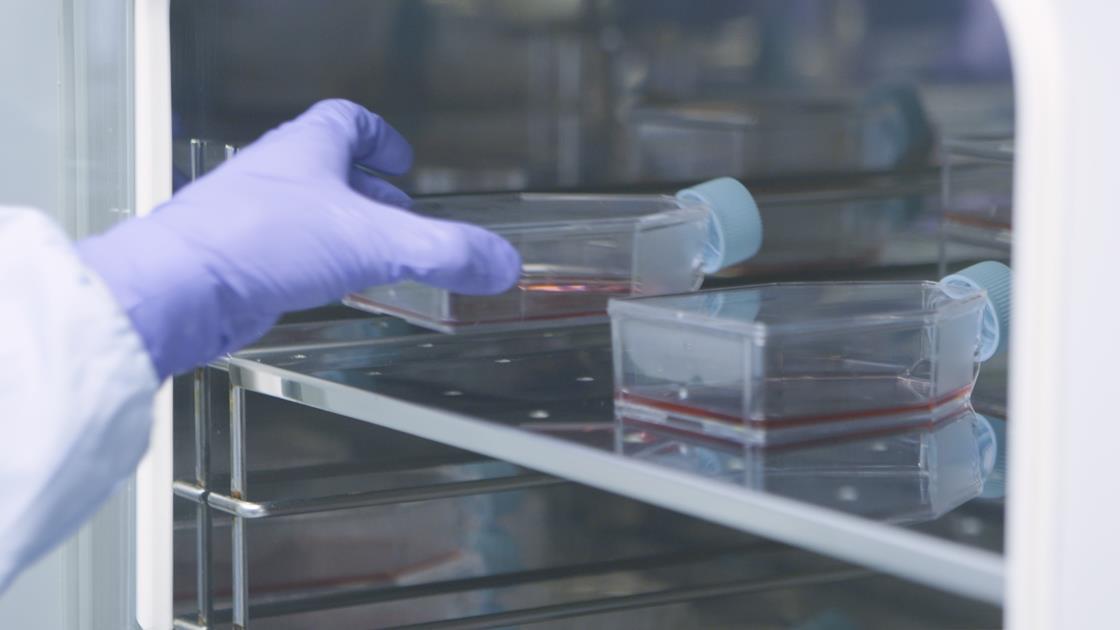Welcome to
On Feet Nation
Members
-
Bramka SMS Online
-
Fotografia Niemowleca Online
-
Brenda Online
-
Theresa Online
-
Rebecca Online
-
TracksNTeeth Online
Blog Posts
Znaleziska z internetu, ktore warto zobaczyc
Posted by Bramka SMS on April 26, 2024 at 8:01pm 0 Comments 0 Likes
Hej! Codziennie dla Ciebie przegladamy internet w poszukiwaniu inspirujacych historii.
http://arquisoft.udistrital.edu.co/web/articles/home/-/blogs/turcja-przewodnik-praktyczny-przygody-atrakcje-zwiedzanie-wypoczynek-porady…
Twoja codzienna porcja internetowych odkryc
Posted by Fotografia Niemowleca on April 26, 2024 at 8:01pm 0 Comments 0 Likes
Dobry wieczor! Codziennie zapraszamy Cie do odkrywania z nami internetowych ciekawostek.
https://rrhh.diputacionavila.es/web/articles/home/-/blogs/minecraft-codi-1
http://31.193.131.133/web/admins/home/-/blogs/testosterone-the-key-for-health-and-longevi-2…
Top Content
10 Fundamentals About cellular agriculture near me You Didn't Learn in School
Mobile Agriculture
Cellular agriculture is the production of food by expanding cells and also harvesting the completed item. Cells produce milk and egg white. These are combinations of proteins and also fats. These products are not produced by pets yet by germs. For example, dairy products protein casein can be grown by inserting the cow DNA into yeast. The yeast produces lots of duplicates of casein and then integrates them to form dairy products. This is a process referred to as acellular agriculture.Developing a decentralized cellular farming system The advantages of a decentralized mobile farming system might surpass the drawbacks. The absence of a post-production supply chain could minimize the ecological effect of cellular farming, while reducing the requirement for storage space as well as transportation. In contrast, a central system could have significant expenses as well as risk, because food produced in a single plant can be far from its consumer. Additionally, this system might lack the economies of scale that come with massive production.While a central mobile farming system can make use of aseptic methods as well as concentrate infrastructure financial investment, a decentralized system is likely to be harder to keep as well as take care of. In addition, it may enhance the chances of malicious stars gaining access to such devices. Therefore, it is vital to preserve stringent sanitation methods to reduce the risk of contamination of items and also workers. This will help stop the spread of germs and other pathogens.To attain food security through cellular agriculture, there are numerous difficulties to overcome. At first, it may be impossible to create substantial amounts of food at inexpensive prices. On top of that, it may not be feasible to meet consumer preferences, if such a system can not be developed effectively. Moreover, mobile farming may not create a substantial amount of food. It likewise poses brand-new challenges when it come to food safety and security. The production of food from mobile agriculture may not be sustainable, so it is essential to deal with possible adventitious representatives as well as impurities. An additional major difficulty is the ease of access of details and understanding to do cellular agriculture. This details needs to be free and also open for public usage. Nonetheless, this might be tough because cellular farming needs millions of bucks in funding.While mobile farming holds great guarantee, numerous inquiries continue to be regarding its practicality and also honest implications. Consequently, it is vague whether the modern technology will be established for family or

community-level manufacturing. In the U.S. and around the world, it is difficult to assess how this technology will impact the food supply chain and also the atmosphere. Nonetheless, the research study has actually produced a brand-new discussion among early adopters and trendsetters of mobile agriculture.Regulations Cellular agriculture is still at an early stage, however sector players are recognizing the relevance of this arising approach for food production. In China, an authorities lately required the application of governing structure for this new technology.
Israel has accepted the principle too, with SuperMeat opening up a test kitchen area in 2021. The governing process will certainly be challenging, but the Israeli government has a performance history of sustaining the sector and the concept.One feasible technique is cell society farming. The procedure is similar to that of growing muscle mass cells for food. Cells expanded thus are not called for to work as organs, but rather must have specific buildings, such as a particular mouthfeel, stamina, as well as structure. The essential difference is that expanding cells for food involves a much larger range than that required for body organ transplants. In order to create a product ideal for human usage, the cells have to be of a high enough high quality to make it risk-free for human consumption.FDA regulation requires the disclosure of details about the resource and identity of cell lines. Details regarding the procedure made use of for option and screening, prep work and banked cell lines, as well as any type of adjustments or adaptations to the cell lines will also be included. Better, this details will assist customers understand the quality of the products generated making use of these cells. Additionally, an item's safety and security will certainly also be guaranteed. This new procedure is the end result of a long history of clinical advancement. It includes a research laboratory as well as a regulated environment.Cellular farming is an appealing modern technology that offers many benefits. Mobile farming not only has a reduced ecological influence, however it likewise improves animal welfare. It likewise intends to generate foods that match plant-based products, targeting the non-vegetarian and vegan population. Cellular farming additionally supplies enormous economic chances. Numerous celebrity capitalists have backed the modern technology given that its beginning. Presently, over 70 firms are actively creating products utilizing cellular agriculture.Costs The use of animal cells in mobile agriculture is debatable. It is typically called cruelty-free, but it does still need living animals as a resource of cells. The disagreements versus mobile farming are generally rooted in utilitarianism, and also the advantages of pet cells far outweigh the expenses of mobile agriculture. While using animal cells is an essential action in pet freedom, this method does have its costs.One of the most significant expenses of cellular agriculture is the
lifelong treatment of contributor animals. Due to the fact that the modern technology is so accurate, business associated good cellular agriculture meat with this procedure should have access to an adequate number of such pets. The business may have to compromise donor pets in order to generate the cells required for mobile farming. This is a significant expenditure, however the benefits are much outweighed by the prices of preserving the contributor animal populations. In addition, mobile agriculture business might need to managespatial as well as financial constraints that are fundamental in pet sanctuaries.Cells in society can only grow to 0.5 mm thick. This makes ground meat easier to grow than steak. Muscular tissue cells can be expanded on a bead, and as soon as expanded, gotten rid of, the item will certainly have the uniformity of hamburger. Cellular farming items are more secure, a lot more constant, and consist of less ecological or health and wellness threats. They are also produced under regulated problems, which must minimize greenhouse gas exhausts. So, what are the prices of cellular agriculture?Animal insulin is arguably the initial item of mobile agriculture. Frederick Banting was the initial diabetic person to get insulin shots in 1922, making use of ground-up pancreases of pets. It was not till 1978 that Arthur Riggs placed the human insulin genetics right into bacteria. Today, engineers can make an identical human insulin from yeast and also bacteria. This is an essential step in boosting our health and the quality of our foods.There are moral problems relating to animal cell society. Pets utilized in study may have been on the slaughter line. The blood collected from the fetus of expectant cows would be used. Along with pet cell farming, genetically modified factory-grown products may also raise moral issues. The absence of public rely on genetically changed factory-grown products is also a significant issue. It is very important to note that, despite the prospective savings, cellular agriculture poses lots of threats, including those connected with animal cell production.Accessibility The benefits of cellular agriculture are numerous, including its capacity for enhanced animal well-being, enhanced dietary worth and also better availability. Moreover, the technology has many societal implications, including the loss of typical livelihoods as well as obstacles to transitioning right into the different meat market. However, these advantages exceed its dangers. Mobile farming offers novel chances and hereditary product to the arising market, as well as can aid increase the supply of foods that were previously pricey and unaffordable.Informed stakeholders evaluated for this study recognized both traffic jams and chauffeurs of change. The bottlenecks represent motifs that hamper the development of cellular farming. The first traffic jam is present practices.
Existing power

relationships and bureaucracy prevent progression. Meanwhile, stakeholders could choose the status quo and also existing structures in the food system. Consequently, technology may not be as easily obtainable as stakeholders would certainly like. Furthermore, an absence of count on may also impede the fostering of mobile farming by consumers.While applying mobile farming, it is important to recognize its socioeconomic and environmental effects. Cellular farming offers chances for food manufacturing and supports healthy diet plans. However in order to achieve these advantages, the technology calls for a lot more tactical thinking as well as cooperation amongst business. For this reason, a trainee interested in this industry ought to stay attached on social media and participate in symposiums. Additionally, a pupil might sign up with a mentorship program like Comply with the Future for more information regarding the field.The advantages of mobile agriculture prolong well beyond the manufacturing of meat and also eggs. In the future, it can be utilized to generate different kinds of animal products, such as cheese, natural leather, as well as eggs without cholesterol or lactose. Regardless of its potential, cellular farming stays an untapped research study area. It will certainly
© 2024 Created by PH the vintage.
Powered by
![]()
You need to be a member of On Feet Nation to add comments!
Join On Feet Nation